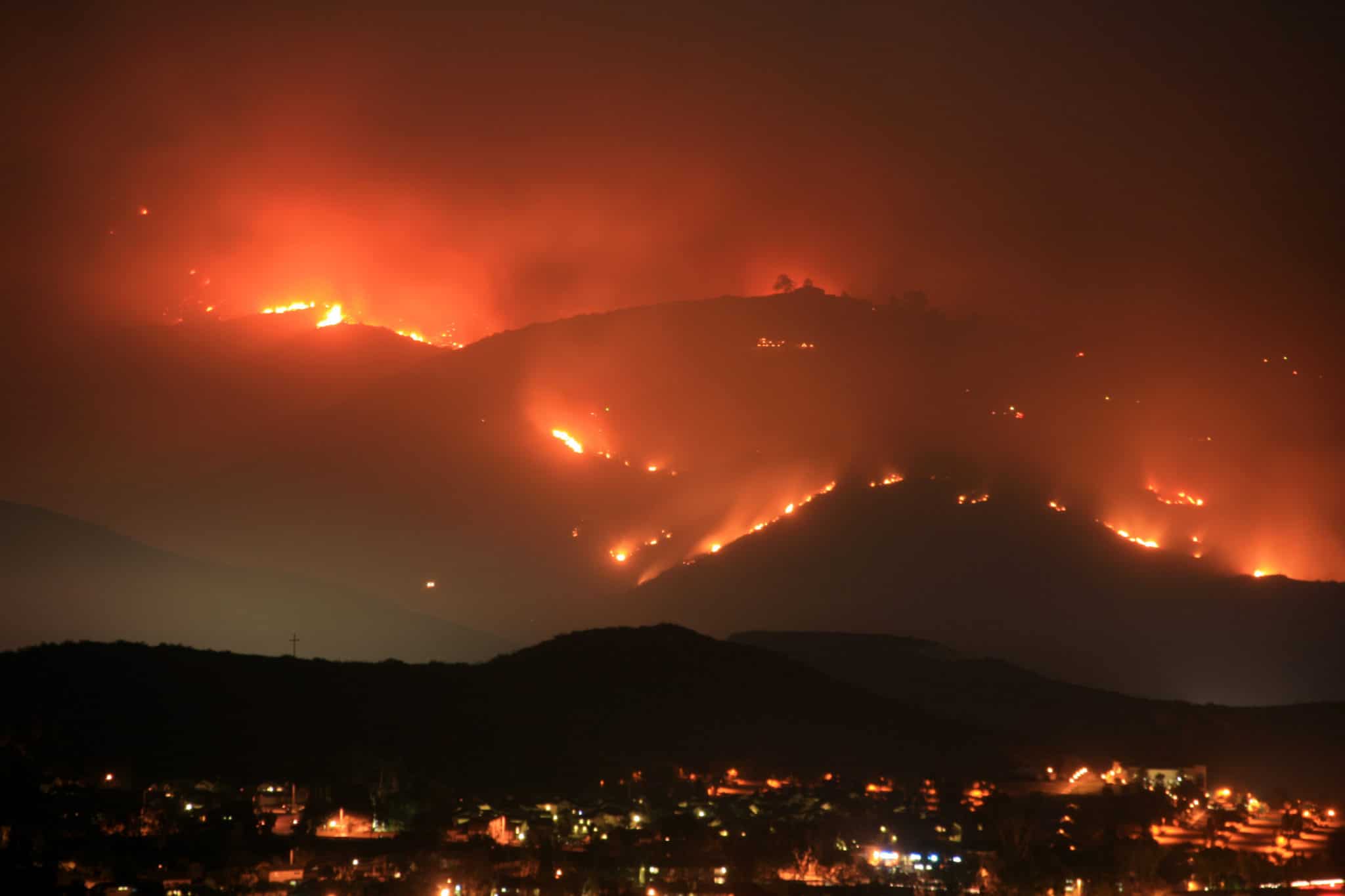
San Diego Fire Season
How to Defend Against Smoke Inhalation during San Diego Fire Season
The San Diego fire season runs almost year-round, but the end of August to the beginning of September is typically the hottest and driest time of year here. We haven’t had rain in months and all of the vegetation that came with the spring rain is dry and brittle. This sets a perfect stage for fires in San Diego.
Fire season brings several risks to your health, mainly caused by smoke inhalation. Smoke inhalation can have lasting effects on your health, cause chronic health conditions, and even be deadly. The fine particles in smoke that come from burning debris can get into your respiratory system and cause bronchitis, aggravate chronic heart and lung diseases, and can even cause premature death in people with these conditions. Although you can’t control Mother Nature, you can control how prepared you are to protect against smoke inhalation during a wildfire.
“Although you can’t control Mother Nature, you can control how prepared you are to protect against smoke inhalation during a wildfire.”
Being prepared for a fire means that when disaster strikes, you can act quickly and safely to protect your health. If you have heart or lung disease or are a senior, smoke inhalation may affect you at much lower smoke levels than the general population. Children are also more susceptible to smoke because their respiratory systems are still developing and they take in more oxygen per pound of body weight than adults.
We have come up with seven easy steps to protect yourself from smoke inhalation during the San Diego fire season:
- If it looks or smells like smoke outside, stay indoors. Don’t partake in prolonged outdoor activity or exercise, and don’t let your children play outdoors if it’s smoky.
- Keep the indoor air as clean and free from smoke as possible. Keep doors and windows closed and run your air conditioner if you have one. Be sure to close the fresh-air intake feature, and keep your filter clean. If you do not have an air conditioner, it may not be safe to stay indoors if the air has smoke in it; you should seek another location to avoid the smoke.
- Do not vacuum when there is a lot of smoke in the air. Vacuuming stirs up the particles already present in your home, adding to the particles in the smoke.
- Avoid using anything that burns inside your home. When smoke levels are already high, don’t add to it by burning wood, candles, or even using gas stoves.
- Prepare beforehand with a room air purifier. These can help reduce particle levels if they are the proper size and type for your home. Have one on standby to bring out when the fires start.
- Leave the area where the smoke is. Particles can build up indoors, even if you can’t see them when smoke is heavy for a long period of time. For the at-risk groups with chronic heart or lung conditions, seniors and children, sometimes it’s best just to leave the area and get to fresh air.
- Talk to your doctor about a health management plan for smoke inhalation. If you have asthma or a chronic condition that is easily affected by smoke, talk to your doctor and have a fire season plan in place. This may involve using an inhaler, taking medication, or quickly avoiding smoke if it is going to be an issue. Prevention is usually the best treatment, so talk to your doctor before fire season and be prepared!
“Prevention is usually the best treatment, so talk to your doctor before fire season and be prepared!”
We all hope that we are never in the path of a fire. However, it is always a risk when living in San Diego and with any fire, the smoke can spread quickly. Taking these steps to prevent smoke inhalation during fire season can have a significant positive impact on your long-term health.
Contact your Scripps Affiliated Medical Groups cardiologist or pulmonologist today about how to manage your heart or lung condition during fire season in San Diego!

Join our Senior Wellness Society for the latest news on Medicare and tips for healthy living in San Diego!
Sign up now ›Are you looking for specialized medical care in San Diego?
Our directory has more than 850 doctors in San Diego County of various specialties who are available to help you.
Find a doctor